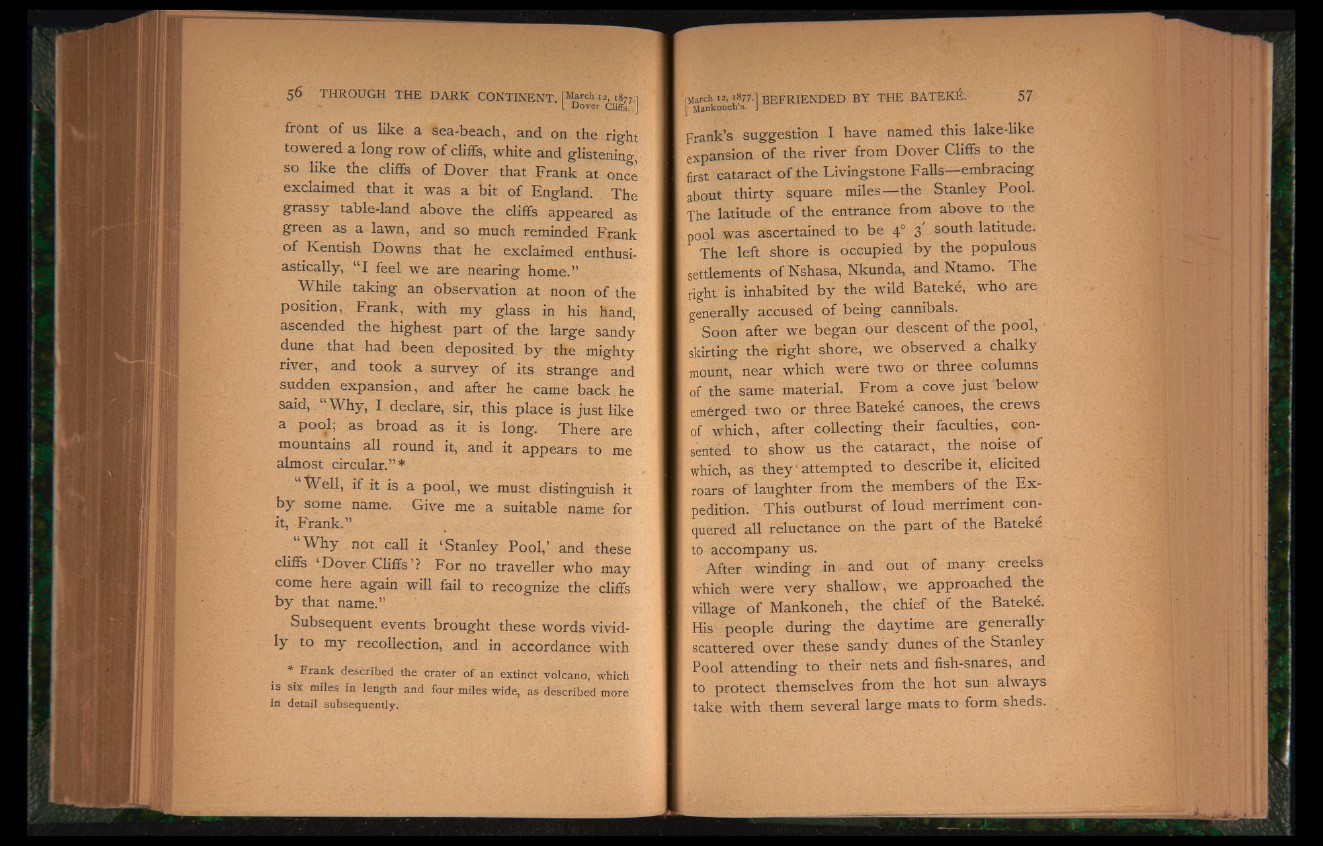
front of us like a sea-beach, and on the right
towered a long row of cliffs, white and glistening,
so like the cliffs of Dover that Frank at once
exclaimed that it was a bit of England. The
grassy table-land above the cliffs appeared as
green as a lawn, and so much reminded Frank
of Kentish Downs that he exclaimed enthusiastically,
“ I feel we are nearing home.”
While taking an observation at noon of the
position, Frank, with my glass in his hand,
ascended the highest part of the large sandy
dune that had been deposited by the mighty
river, and took a survey of its strange and
sudden expansion, and after he came back he
said, “Why, I declare, sir, this place is just like
a pool; as broad as it is long. There are
mountains all round it, and it appears to me
almost circular.” *
Well, if it is a pool, we must distinguish it
by some name. Give me a suitable name for
it, Frank.”
Why not call it 'Stanley Pool,’ and these
cliffs 'Dover Cliffs ? For no traveller who may
come here again will fail to recognize the cliffs
by that name.”
Subsequent events brought these words vividly
to my recollection, and in accordance with
Frank described the crater of an extinct volcano, which
is six miles in length and four miles wide, as described more
in detail subsequently.
[March 12, 1877.1 BEFRIENDED B Y THE BATEKE. 57 I Mankonehs. j
prank’s suggestion I have named this lake-like
expansion of the river from Dover Cliffs to the
first cataract of the Livingstone Falls-embracing
about thirty square miles— the Stanley Pool.
The latitude of the entrance from above to the
. pool was ascertained to be 40 3 south latitude.
The left shore is occupied by the populous
settlements of Nshasa, Nkunda, and Ntamo. The
right is inhabited by the wild Bateke, who are
generally accused of being cannibals.
Soon after we began our descent of the pool,
skirting the right shore, we observed a chalky
mount, near which were two or three columns
of the same material. From a cove just below
emerged two or three Bateke cartoes, the crews
of which, after collecting their faculties, consented
to show us the cataract, the noise of
which, as they1 attempted to describe it, elicited
roars of laughter from the members of the Expedition.
This outburst of loud merriment conquered
all reluctance on the part of the Bateke
to accompany us.
After winding in and out of many creeks
which were very shallow, we approached the
village of Mankoneh, the chief of the Bateke.
His people during the daytime are generally
scattered over these sandy dunes of the Stanley
Pool attending to their nets and fish-snares, and
to protect themselves from the hot stin always
take with them several large mats to form sheds.